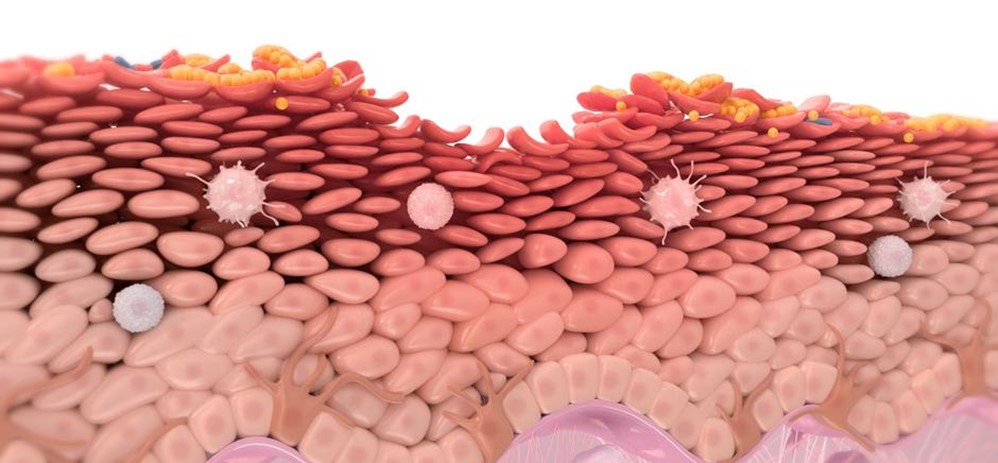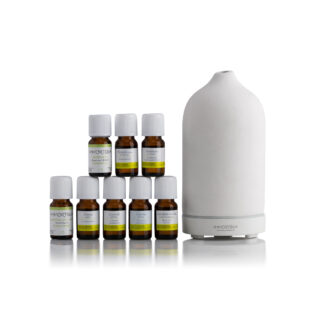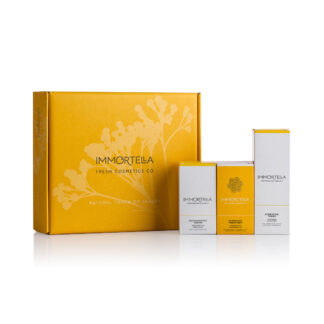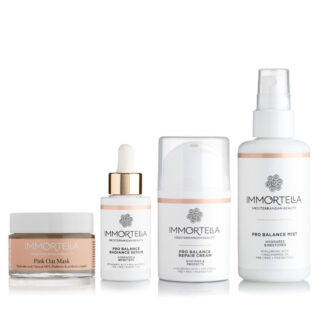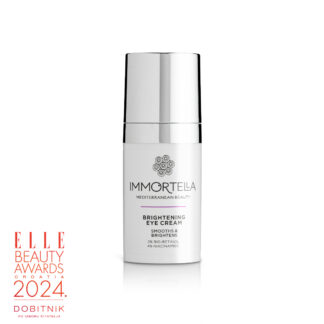Media headlines constantly remind us of the importance of well-nourished and healthy skin, and we all strive for it. But skin care does not include only a proper routine and products, it is also necessary to pay attention to the skin itself and its composition.
Do you know that the skin microbiome plays a big role in the health and appearance of the skin itself? Below, we will describe in more details what the microbiome is, what role it plays and how we can ensure its balance.
What is microbiom?
The surface of our skin is covered with microorganisms, and they have an invaluable role in skin health. Our microbiome consists of all the microbes that live in and on the body, and it consists of 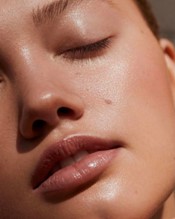 bacteria, viruses and fungi. The microbiome even exceeds the number of our cells – there are far more microbial genes than human genes. Other than on surface, microorganisms are also found in the deeper layers of the skin, and they feed from the components of sebum, sweat and keratinized skin cells. Since the microbiome consists of living organisms, its structure is easy to disrupt.
bacteria, viruses and fungi. The microbiome even exceeds the number of our cells – there are far more microbial genes than human genes. Other than on surface, microorganisms are also found in the deeper layers of the skin, and they feed from the components of sebum, sweat and keratinized skin cells. Since the microbiome consists of living organisms, its structure is easy to disrupt.
Bacteria colonies on our skin help in many ways – they prevent the development of potentially dangerous microorganisms, raise immunity and keep the skin barrier functional. To perform all these tasks, the microbiome has to be balanced and diverse to prevent the domination of pathogenic bacteria. The more diverse the microbiome, the healthier is the skin.
Using a carefully selected skin care routine can help balance the microbiome. Important ingredients are probiotics, prebiotics and antioxidants. Probiotics and prebiotics encourage the growth and development of „good“ microorganisms, while antioxidants protect from free radicals.
What causes microbiome imbalance?
External factors such as water, alkaline and antimicrobial soaps negatively affect the skin microbiome – the pH of the skin increases, it loses its lipid layer and becomes dry which further contributes to the growth of bad bacteria.
The modern way of life which includes washing and disinfecting hands too often, the products we use and the reduced time spent in nature have led us to a super hygienic atmosphere in which besides bad microorganisms, we also wash off the skin’s natural lipid layer and thus drying it further.
A weak microbiome means a weaker skin barrier – the skin becomes prone to inflammations, redness and peeling. A healthy skin barrier retains moisture and prevents the entry of pathogens and irritants. When one strain of bad microorganisms begins to spread, dysbiosis occurs, i.e. imbalance – a state of poor diversity of the microbiome. It can also manifest as sensitive skin and can accelerate the signs of skin aging – loss of elasticity, uneven tone and wrinkles.
How to improve the balance of the microbiome?
Improving and maintaining the balance of the microbiome is extremely important for skin health. It is necessary to use mild products with natural ingredients – if we pay more attention to the microbiome, we will improve skin health at its source. 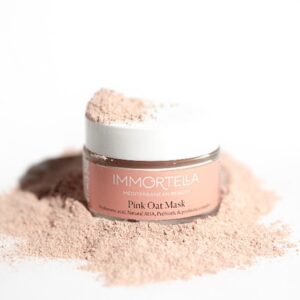 Many problems can be caused by the products we use. In addition to the already mentioned probiotics, prebiotics and antioxidants, if the skin barrier is compromised, it is necessary to focus on ingredients such as aloe vera, jojoba, shea butter and squalane. Pink oat mask contains oat extract enriched with probiotics, prebiotics and natural AHA acid that stimulates cell renewal and helps balance the microbiome. We recommend using the mask several times a week.
Many problems can be caused by the products we use. In addition to the already mentioned probiotics, prebiotics and antioxidants, if the skin barrier is compromised, it is necessary to focus on ingredients such as aloe vera, jojoba, shea butter and squalane. Pink oat mask contains oat extract enriched with probiotics, prebiotics and natural AHA acid that stimulates cell renewal and helps balance the microbiome. We recommend using the mask several times a week.
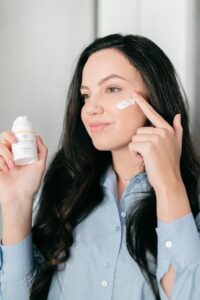 Hydration – healthy skin is hydrated, and dehydration negatively affects the balance of the microbiome. Make sure to drink plenty of water throughout the day, and always have an Alcohol free facial toner at hand for instant refreshment. The moisturizing face cream contains red algae extract which supports skin regeneration and elasticity by stimulating collagen synthesis, while argan, jojoba and evening primrose deeply nourish and nurture.
Hydration – healthy skin is hydrated, and dehydration negatively affects the balance of the microbiome. Make sure to drink plenty of water throughout the day, and always have an Alcohol free facial toner at hand for instant refreshment. The moisturizing face cream contains red algae extract which supports skin regeneration and elasticity by stimulating collagen synthesis, while argan, jojoba and evening primrose deeply nourish and nurture.
Don’t over cleanse – oover cleansing your skin can be just as bad as not cleaning at all. Too frequent use of disinfectants, shower gels and soaps that contain harsh ingredients can damage the microbiome and wash away natural oils and good bacteria from the skin. Use natural oils and nourishing cleansers with natural ingredients in the morning and evening. Gentle cleansing maintains the skin’s natural pH balance and supports an optimal environment for a healthy skin microbiome. We recommend using the Clay scrub & mask treatment which gently exfoliates, deeply cleans and regenerates the skin. Jojoba and apricot oils nourish, while immortelle acts on signs of skin aging.
Go outdoors – enjoy a relaxing walk in the nature or engage in some outdoor activity. You will feel better and as well increase the diversity of the microbiome, which will affect your skin to be brighter.
When introducing probiotic facial care, it is necessary to avoid aggressive ingredients and rubbing on the skin. It is advisable to keep the products in a cool place as well as pay attention to nutrition by eating fiber-rich foods. Additionally, limiting the use of antibiotics is also important since they destroy the good bacteria in the body.
Please consider our advice, start taking care of your skin from the inside out and enjoy the process.

